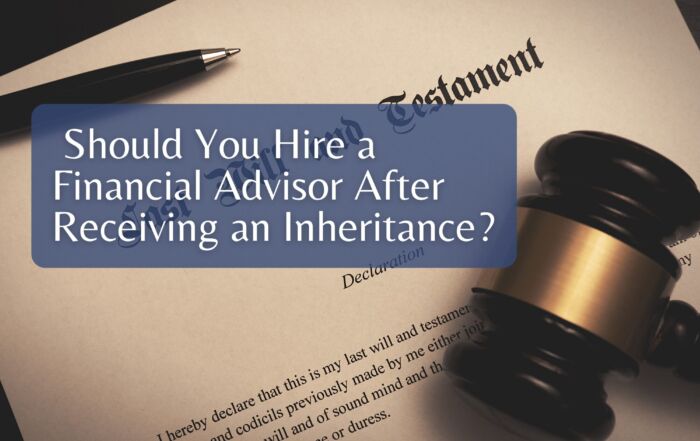Should Airline Pilots Buy or Rent a Home?

Buying a home is one of the biggest financial decisions most people make, but for airline pilots, the choice to rent or buy is uniquely complex. With unpredictable base assignments, varying income levels, and the potential for long commutes, pilots must weigh more than just mortgage rates and real estate trends. The right decision often comes down to a balance between flexibility, lifestyle, and long-term financial goals. So, should pilots rent to stay flexible and buy or rent to build equity?
Why Many New Pilots Choose to Rent
Early in their careers, pilots often lead transient lives, especially those coming from military backgrounds or flying for regional airlines. It’s not uncommon to own a home in one city only to be assigned a crew base in another. This uncertainty can make buying a home risky in the beginning.
Stability usually comes after landing a position at a major airline, but even then, base assignments can shift. Renting offers flexibility during these early years, allowing pilots to follow career opportunities without the burden of selling a home or managing long-distance tenants.
The Commuting Conundrum: Financial Strategy vs. Family Time
Many pilots choose to commute by air to their base, especially if they want to live in a more affordable city or stay rooted for family reasons. This can save money, but it comes with trade-offs, such as time spent commuting is unpaid and exhausting. Crash pads (shared apartments near base) offer a cost-effective solution, but they sacrifice comfort and privacy.
Living in base drastically improves quality of life. Pilots can go straight home after trips and avoid extra nights away, but hubs like New York, San Francisco, or Chicago are expensive. Without geographic pay adjustments, pilots often must choose between lifestyle convenience and cost of living.
Pilot Pay Progression and Home Affordability
- Regional First Officers earn $70K–$100K. Inexpensive cities may allow for modest homeownership, but renting is often more practical early on.
- Major Airline First Officers see incomes rise to $90K–$150K. Buying becomes more attainable, especially in affordable hubs like Dallas or Atlanta.
- Major Airline Captains can earn $300K–$ 500K+. At this level, homeownership is typically well within reach, even in higher-cost areas, though lifestyle priorities still matter.
Financial Factors: What Pilots Should Consider
- Upfront Costs and Cash Flow: Buying a home requires significant savings for a down payment and closing costs. Renting typically has lower entry costs and keeps cash flow flexible, a key benefit early in a pilot’s career when training debt may still be a factor.
- Equity vs. Flexibility: Owning builds wealth over time, but limits mobility. Renting allows pilots to relocate or bid new bases without the hassle of selling property.
- Tax Benefits and Long-Term Value: Mortgage interest and property taxes can be tax-deductible, which benefits higher earners. However, the 2017 tax law capped some deductions, limiting benefits on expensive properties.
- Market Timing and Interest Rates: Interest rates and home prices fluctuate. Pilots may benefit from renting when markets are high or rates are steep, and buying when rates drop or they plan to stay in one place for 5+ years.
Lifestyle Considerations: More Than Just the Math
- Family and Stability: A consistent home base can be especially valuable for families, providing routine and community ties. Some pilots choose to live away from base and commute, prioritizing a better environment for their loved ones.
- Time at Home vs. Cost of Living: Living near base maximizes off-duty time. But if housing is unaffordable, pilots may opt to commute and live where their income stretches further. The trade-off is more time away from home.
- Career Mobility: Owning a home can limit your ability to pursue promotions or transfer bases. Renting allows more agility in chasing seniority gains or better schedules.
- Personal Preferences: Some pilots value the freedom and low maintenance of renting. Others want to personalize a home and build equity. Lifestyle preferences should play a role in the final decision.
Finding the Right Balance: Should You Buy or Rent?
There’s no one-size-fits-all answer for pilots deciding whether to buy or rent. Pilots should consider:
- How stable is your current base and career path?
- Are you willing to commute for financial or family reasons?
- Can you afford the upfront and monthly costs of homeownership comfortably?
In many cases, renting during the early or uncertain stages of a career and buying once you reach captain or secure a long-term base strikes the best balance. Pilot salaries tend to grow significantly over time, so waiting to buy can be a smart move. Remember, homeownership is more than a financial decision, it’s about building the life you want when you’re not flying.
Casey Smith
President, Wiser Wealth Management
Share This Story, Choose Your Platform!
Wiser Wealth Management, Inc (“Wiser Wealth”) is a registered investment adviser with the U.S. Securities and Exchange Commission (SEC). As a registered investment adviser, Wiser Wealth and its employees are subject to various rules, filings, and requirements. You can visit the SEC’s website here to obtain further information on our firm or investment adviser’s registration.
Wiser Wealth’s website provides general information regarding our business along with access to additional investment related information, various financial calculators, and external / third party links. Material presented on this website is believed to be from reliable sources and is meant for informational purposes only. Wiser Wealth does not endorse or accept responsibility for the content of any third-party website and is not affiliated with any third-party website or social media page. Wiser Wealth does not expressly or implicitly adopt or endorse any of the expressions, opinions or content posted by third party websites or on social media pages. While Wiser Wealth uses reasonable efforts to obtain information from sources it believes to be reliable, we make no representation that the information or opinions contained in our publications are accurate, reliable, or complete.
To the extent that you utilize any financial calculators or links in our website, you acknowledge and understand that the information provided to you should not be construed as personal investment advice from Wiser Wealth or any of its investment professionals. Advice provided by Wiser Wealth is given only within the context of our contractual agreement with the client. Wiser Wealth does not offer legal, accounting or tax advice. Consult your own attorney, accountant, and other professionals for these services.





